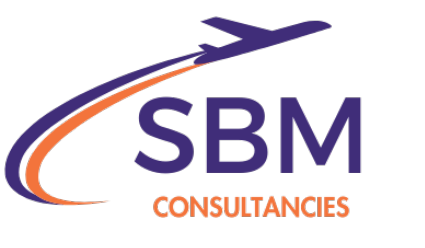What is a Study Visa?
A Study Visa is a type of visa granted to international students who wish to pursue education in a foreign country. It allows students to live in the host country for the duration of their studies, whether it’s for a short-term course, undergraduate, postgraduate, or doctoral program. A study visa is typically issued by the country where the student plans to study, and it serves as permission to reside and study there.
Why Do You Need a Study Visa?
If you’re planning to study abroad, a Study Visa is a mandatory requirement for legal entry into the host country. It allows you to:
Legally Live and Study: Stay in the country for the duration of your academic program.
Work Part-Time: In many countries, study visas allow students to work part-time to help support themselves while studying.
Access to Educational Benefits: Study visa holders may have access to health services, student discounts, and other benefits available to local students.
Possibility for Post-Graduation Work: Some study visas offer pathways to work after graduation, which can lead to permanent residency.
Study Visa Process
The process for applying for a study visa generally includes several steps:


Can I work while on a study visa?
Can I bring my family on a study visa?
How can I extend my study visa?
Can I stay after my studies?
Documents Required for a Study Visa

Documentation List
Acceptance Letter: Proof of enrollment in an accredited educational institution.
Financial Proof: Evidence that you can support yourself financially during your studies (bank statements, scholarship letters, etc.). Proof of Accommodation: Documents showing where you will stay while studying (university housing, rented apartment, etc.).
Visa Application Form: Completed and signed visa application form from the embassy or consulate. Health Insurance: In some countries, proof of health insurance coverage is required. Academic Transcripts and Certificates: These may be required to prove your eligibility for the course.
English Proficiency Test Scores: For English-speaking countries, you may need to provide IELTS, TOEFL, or other test scores.
Benefits of a Study Visa
Part-Time Employment: Many countries allow students to work part-time while studying, which can help reduce living expenses and gain practical experience.
Cultural Exchange: Living and studying abroad offers an enriching cultural experience, helping you gain a global perspective. Post-Graduation Work Opportunities: Some countries offer work permits or post-study work visas that allow students to gain experience in the country after completing their education.
Dependents: In some countries, you may be able to bring your spouse and children as dependents under your student visa.
Study Visa Requirements by Country
Letter of Acceptance: Proof of enrollment from a recognized educational institution.
Financial Evidence: Bank statements, scholarship letters, or affidavits showing you can support yourself financially while studying.
Language Proficiency: Proof of proficiency in the language of instruction (e.g., IELTS, TOEFL for English-speaking countries). Health Insurance: Some countries require students to have adequate health insurance coverage. Application Fees: Application processing fees that vary by country.
Duration and Renewal of Study Visas
Renewal: Study visas can usually be renewed if the course duration extends. For postgraduate studies, students may need to apply for a new visa or permit depending on the country.


